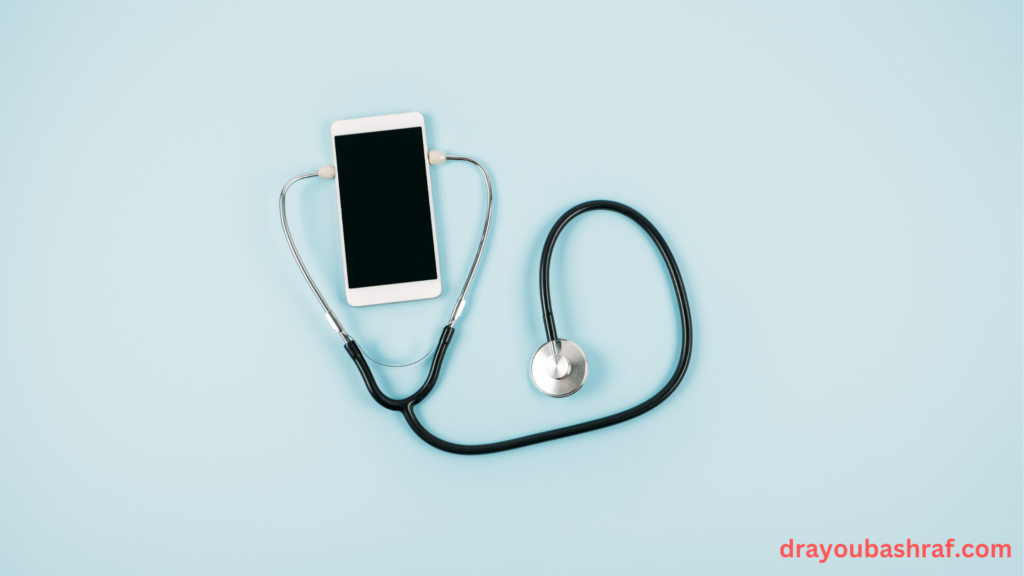Introduction
Imagine a world where you don’t need to visit a doctor for routine checkups—where your smartphone analyzes your heart rate, monitors your blood sugar, scans your skin for abnormalities, and even detects early signs of disease.
That world is no longer a futuristic vision—it’s happening right now.
From AI-powered symptom checkers to remote patient monitoring, smartphones are transforming healthcare by making medical tools more accessible, affordable, and efficient. But as we shift toward smartphone-based diagnostics and AI-driven medicine, one big question arises:
Will we still need in-person doctor visits in the future?
1. How Smartphones Are Replacing Traditional Doctor Visits
The days of booking an appointment, sitting in a waiting room, and seeing a doctor for basic checkups are rapidly changing. Mobile technology has enabled self-monitoring and AI-assisted diagnostics, giving people the ability to:
- Check their heart rhythm using ECG apps.
- Monitor oxygen levels and respiratory health with built-in smartphone sensors.
- Detect skin conditions and abnormalities using AI-powered dermatology apps.
- Measure blood sugar levels without finger pricks using continuous glucose monitors linked to mobile devices.
- Consult with AI chatbots for preliminary symptom analysis.
These tools don’t just save time and money—they also help catch medical issues early, leading to better health outcomes.
2. The Rise of AI-Powered Digital Health Assistants
Artificial intelligence is supercharging mobile health tools, offering real-time, personalized medical insights. AI-driven applications can:
- Analyze lab results and medical images with precision.
- Provide instant triage recommendations, helping patients decide whether to seek in-person care.
- Track chronic conditions like diabetes and hypertension, alerting patients to critical changes.
- Assist doctors in diagnosis by comparing patient symptoms with vast medical databases.
Tech giants like Google, Apple, and Amazon are investing billions in AI-driven healthcare solutions, proving that mobile health is here to stay.
3. Will Doctors Become Less Relevant in the Age of Digital Healthcare?
As smartphones become smarter, some worry that technology will replace human doctors. However, while digital tools enhance efficiency, they also come with risks:
- Smartphones can’t replace human judgment – AI-based health apps may misinterpret symptoms or overlook complex conditions.
- Patients may delay care – Relying on mobile health tools instead of seeing a doctor could lead to undiagnosed illnesses.
- Privacy concerns – Storing sensitive health data on smartphones raises security risks and ethical questions.
Instead of replacing doctors, digital health should complement traditional medicine, making healthcare more proactive, accessible, and patient-driven.
4. What This Means for the Future of Healthcare
The shift toward smartphone-based medicine is inevitable. However, for it to be truly effective, healthcare providers, tech developers, and policymakers must:
✔ Ensure AI-driven tools are medically reliable – Continuous updates and clinical validation are crucial.
✔ Integrate mobile health into traditional care models – Healthcare systems should embrace digital-first strategies while maintaining human oversight.
✔ Educate patients on responsible use – Mobile health should enhance—not replace—professional medical advice.
✔ Prioritize security and data privacy – As more medical data is stored on smartphones, robust encryption and ethical data handling are critical.
Final Thoughts
Smartphones are no longer just communication devices—they’re powerful medical tools that are redefining how healthcare is delivered.
But as we embrace this digital revolution, the challenge is not just about technology—it’s about making sure these innovations truly improve patient care, not just convenience.
Follow for More Insights:
🔗 Follow on LinkedIn: https://www.linkedin.com/in/muhammad-ayoub-ashraf/
🌍 Visit the website for more insights: www.drayoubashraf.com
▶ Watch on YouTube: https://www.youtube.com/@HealtheNomics


